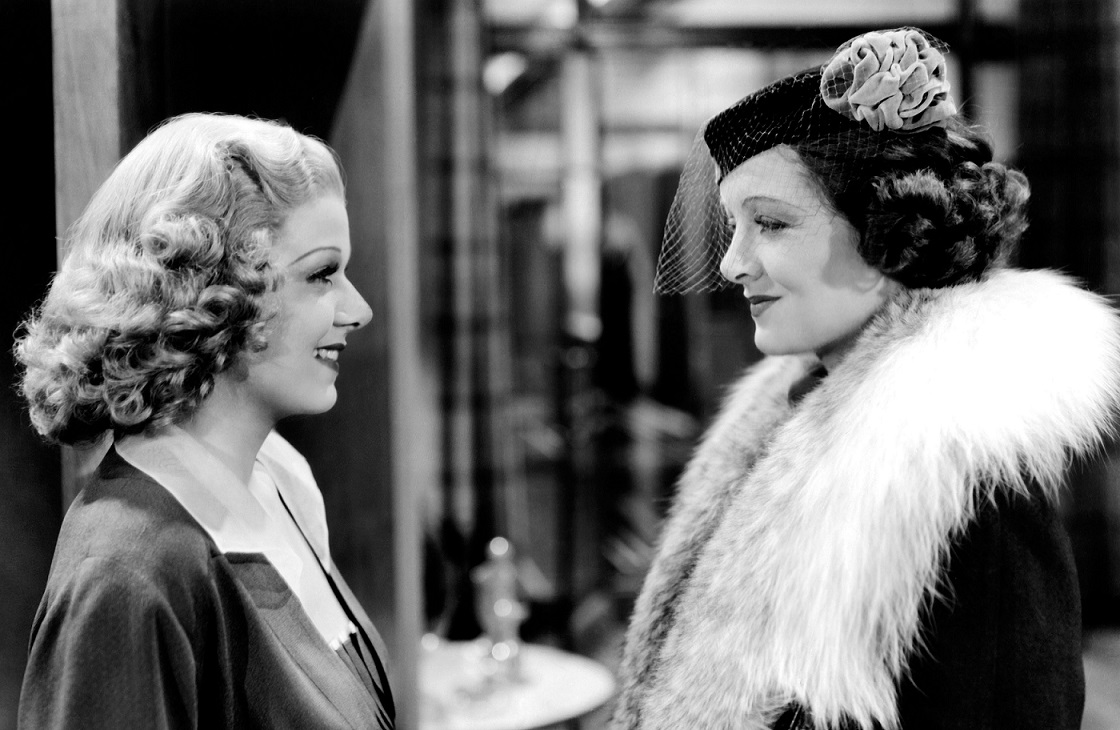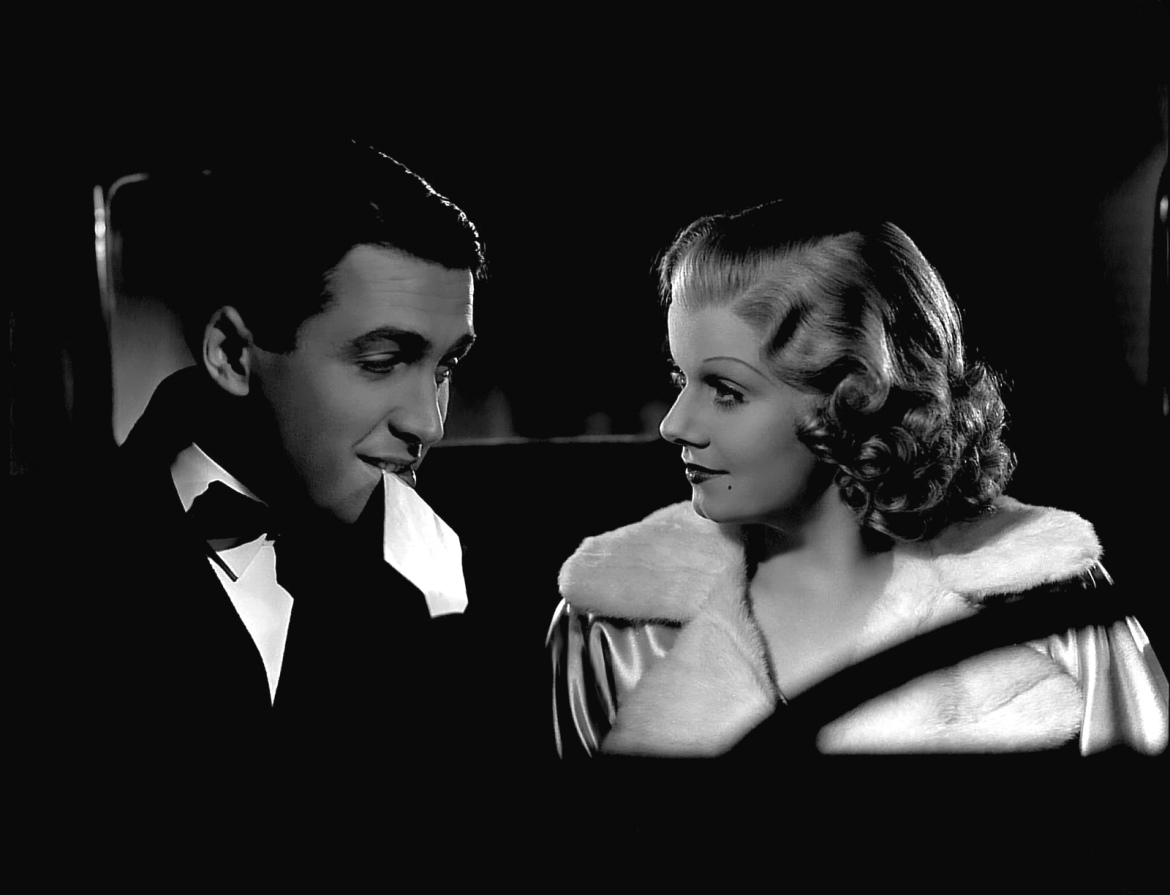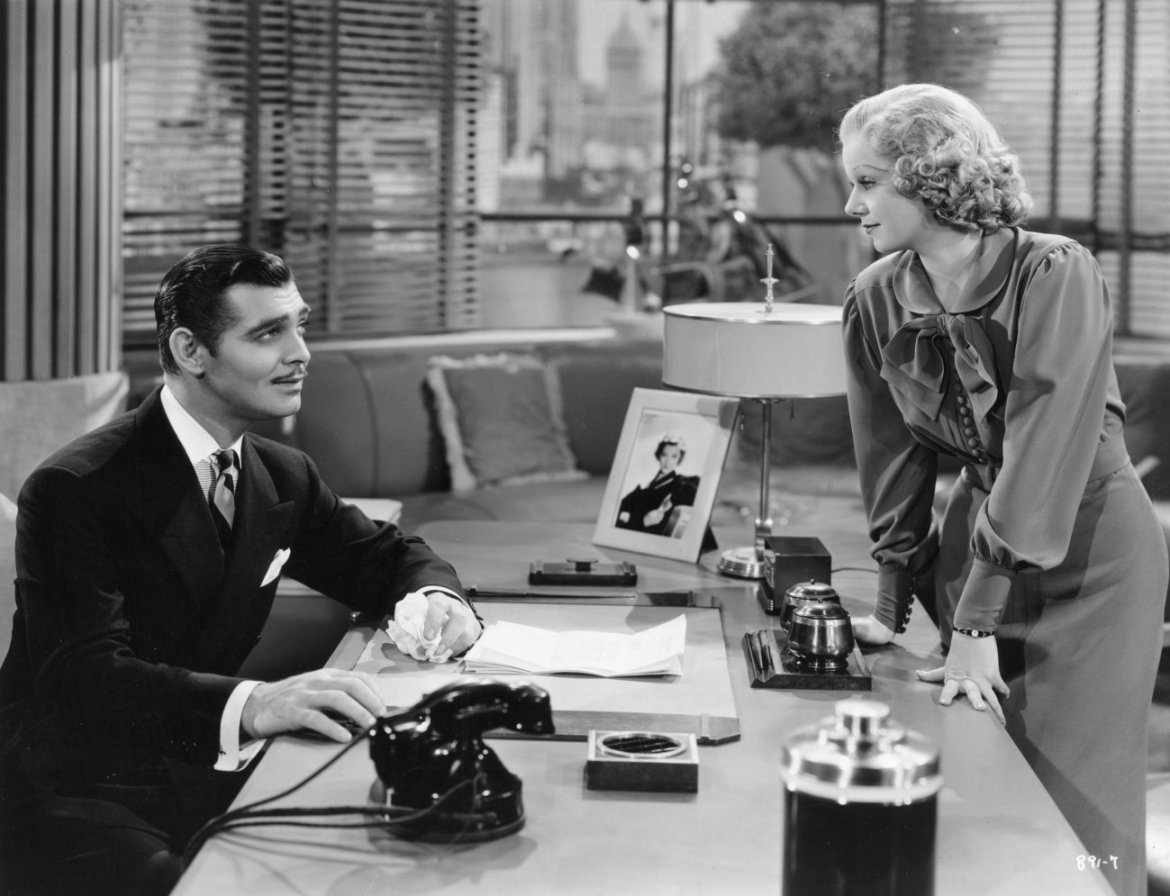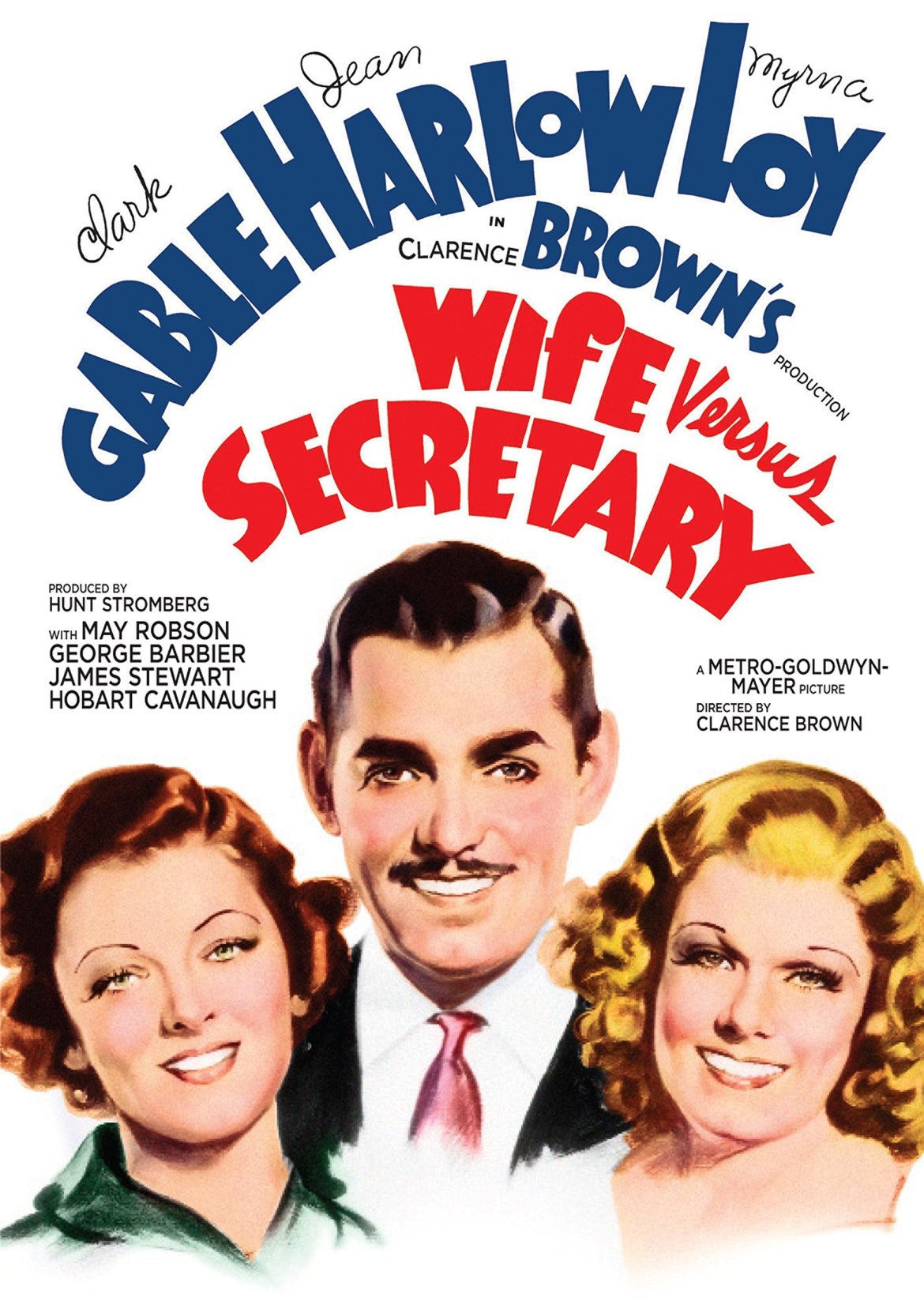In the study fo film history, every so often you come across a film which just hits a sour note. While everything on-screen in Wife vs. Secretary should play well with a solid cast and well constructed , the romantic drama doesn’t gel when viewed through a contemporary perspective. Wife vs. Secretary proves itself to be a fascinating study in not only film history, but also in how changing social and political dynamics can change societal views over time.
Wife vs. Secretary follows Van (Clark Gable), a man who has everything going for him. He had a successful business, and beautiful and happy wife (Myrna Loy). However, he also has a beautiful and faithful secretary (Jean Harlow). Since ladies are… ladies… can a man really have a productive relationship with his wife as well as his secretary? The film is directed by Clarence Brown from a script by John Lee Mahin and Norman Krasna.

Wife vs. Secretary is particularly problematic in the treatment of its female characters led by Loy and Harlow. Both women feel like their standard selves on-screen, highly likable in their own way. Harlow is ultimately a sterilized version of her pervious star persona. We hear how beautiful and sultry Whitey is, however this is purely projected on her (often by other women). In an early scene, an elderly male party guest looks her over, “Gentlemen, even I would be able to give that girl dictation”. This is a fairly overt double entendre for the early Production Code era, as we know that Any sexuality in her performance is absent. Her chemistry with Gable is typically solid, but hardly sexual. In fact, with the exception of a few scenes She’s savvy, street-wise and relatively working class. In fact, she even has a sweetheart (a pre almost everything James Stewart). Despite everything, the secretary must be sweet on her employer… that’s just how it works, right?
On the same front, Loy’s character walks a difficult line. Linda is a modern woman (of the Nora Charles variety). She’s young, wealthy and brings a progressive viewpoint to the narrative. Early in the movie, she maintains the importance of trusting her husband in the face of everyone around her (including Van’s mother) warning against it. Boys will be boys after all (sigh).

Everything about Wife vs. Secretary seems to want to turn Linda into the villain. While the society depicted in the movie wants to put blame on Whitey, we are shown clearly that there is nothing there. As such, as her suspicion grows, Linda becomes the villain. She’s the woman throwing away a perfectly good marriage (with a man who looks like Clark Gable none the less) for absolutely no reason at all. Late in the film, Van pleads with his wife, “You’re destroying something neither of us will find anywhere else”. At this point, Loy had only appeared in one Thin Man movie (After The Thin Man didn’t hit theaters till December of 1936. This movie hit theaters in February). As such, while it’s easy to see the likability and relatablity of Nora Charles now, audiences in 1936 wouldn’t have this context. Even though Loy had been in pictures for almost ten years by this point, the phase of her career contemporary viewers are most familiar with was just getting going.
Perhaps most troubling is the treatment of masculinity in the narrative. Clark Gable is typically Gable in this film, which presents the problematic takes on masculinity we are still struggling with in contemporary popular culture. The prevailing take (and in truth, Gable’s whole star persona) is that “Boys will be boys”. Womanizing behaviour from men is expected, defended and largely justified by the narrative of the film. They can’t help it… they’re just men. One of the most pointed examples of this comes from Van’s mother as a distraught Linda goes to her with her suspicions, “Men are like that… you wouldn’t blame a little boy for stealing a piece of candy if left alone with a whole box full”.

Perhaps equally as noticeable is how clueless Van appears to be as the narrative rages around him. While the film plays out, Van seems completely out of touch with the women in his life. Rather than truly knowing the women around him (and what they are going through), he’s perfectly content to simply use what the women can give them, and ignore everything else going on with them. He can’t see that his unforgiving hours is affecting Whitey’s personal life (and relationship with David), and he doesn’t seem to think of how his close relationship with his personal secretary might look to his wife. The prevailing take on masculinity in this film is that it is the man’s responsibility to go to work and it is a woman’s role to make that work. Early in the film (in a questionable double entendre), Linda says, “She’s as important to him downtown as I am uptown”. In this moment, she seems to be limiting herself to how she plays into her relationship with Van than her identity as an independent woman.
Ultimately, it is Linda’s character who struggles the most with the progression of the narrative. She’s very much on the outside of the story, while Van and Whitey spend much of the story together. As the story comes to a conclusion, the film doesn’t feel sure on how it wants to end things. Whitey is given a dramatic speech, meant to show Linda exactly what she’s doing in walking away from her marriage.
But I don’t want you to go back to him. I hope he never sees you again…. If you leave him now, you’ll never get him back…He’s going to be lonely. His life won’t end with you, you know. And when the rebound sets in, he’s going to turn to the woman nearest. And you know who it’ll be… Tomorrow he’s taking me to Bermuda, as a friend. But it won’t go on like this. Pretty soon he’ll want to buy me things. That’s how it always starts. And then it’ll be too late, because if he ever turns to me, I won’t turn away.
The aim of the scene is evident. Ever the good secretary, Whitey only approaches Linda with this in hopes of fixing the marriage. She’s not going to run off with Van; rather, as the film ends, she seems perfectly ready to accept her fate and go off alone into the night. However, as she seems at her most alone, David is waiting for her (thus giving Whitey a mildly surprising happy ending).

At the same time, Linda’s plot line is a little more murky. The play in the scene with Whitey doesn’t show that she’s emotionally tied to the speech, or even believes the young secretary. In fact, Loy plays the scene in a relatively icy manner. So, when she swallows her pride and returns to Van, the character motivation feels like a stretch. Everything ends happily, but what swayed her? We never get to truly see Linda’s emotion, instead letting her character take a back seat to everyone around her.
Watching Wife vs. Secretary, it is perfectly easy to see what about this film might have pulled in Depression era audiences. The cast is absolutely luminescent in the 1930s romantic melodrama. However, the film struggles in that it hasn’t aged well. A number of factors, ranging from sex and gender roles to evolutions in star persona make it difficult for viewers to see this film how its meant to be seen. Ultimately, these changes make it difficult to become invested, ultimately dating the narrative.
Wife vs. Secretary is currently streaming on FilmStruck.

seanbockius1
great content